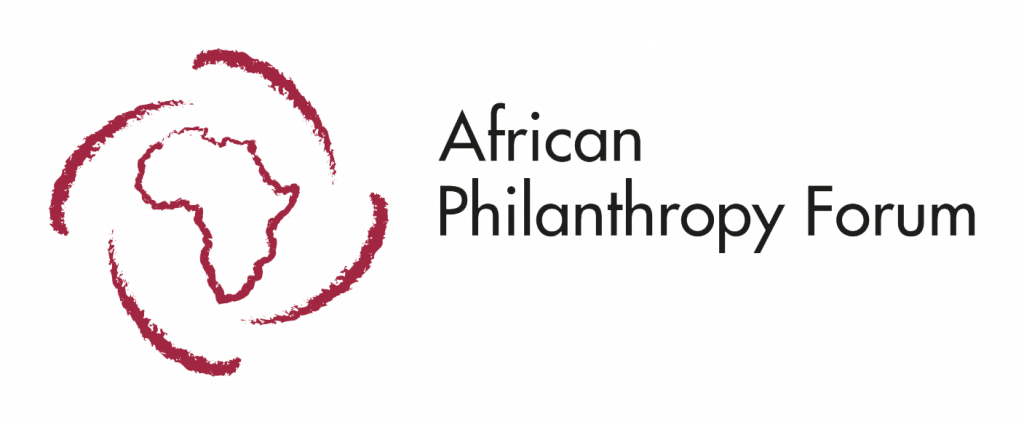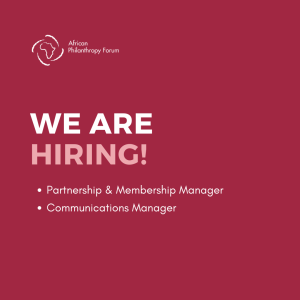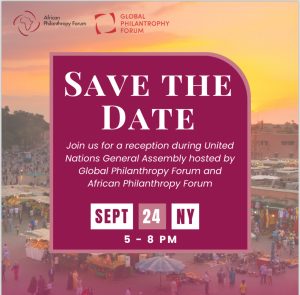
Janade du Plessis is an investment banker and social entrepreneur. Janade began his career at Standard Bank and then Goldman Sachs, and went on to work at Rand Merchant Bank (RMB) and the African Development Bank. He is the founder of Abrazo Capital, a social impact investment company, which he established to invest in small businesses and community projects in South Africa. Janade is also the Co-Founder and Executive Board Member of Marang Capital Management, a social infrastructure fund that invests in hospitals across Africa. Janade serves as a coach to young entrepreneurs and is an active angel investor.
How did your philanthropy journey begin?
There have been a number of people in my life who were a source of inspiration – my mother and the women who helped to raise me. I grew up in a township in South Africa on the outskirts of Cape Town. I grew up on the Cape Flats, a displaced community of mixed-race South Africans, relocated onto the outskirts of Cape Town City due to the segregation laws of the apartheid government at the time. The women I knew worked long hours and did everything to earn extra income from selling vegetables to baked goods. They taught me about business. I learnt from them the importance of not only having one but several jobs. Through their support, I’ve had a great education and a career. I feel a sense of responsibility to give back by using my talents and financial skills. I often have all kinds of people come to me for business advice or to pitch an idea, and I make time for them – I see that as part of my philanthropy.
I’ve always been involved in philanthropy, but when I was a student at the University of Cape Town’s (UCT) Graduate School of Business in 2003, I had my “light bulb moment.” I’m passionate about helping black women in South Africa’s townships because I felt they were the most marginalized under apartheid. I wanted to invest in businesses owned by women to help them push through the financial barriers in life. I felt that this was a huge need even more so than just giving money to charity.
It all started from a discussion I had with one of my professors at UCT’s Bertha Centre for Social Innovation and Entrepreneurship. I knew a woman through a family connection who was running a hair salon. I saw how determined she was despite not having all the resources and my business brain clicked in and said, “right, this business needs an investor.” With guidance from my professor, I made my first investment in this hair salon to help the owner upgrade her equipment. I later did the necessary registrations in South Africa and found other angel investors to pull our money together. This is how I set up Abrazo Capital. It was the moment when I got more “hands on” in philanthropy.
How did Abrazo Capital develop?
I saw how the first business was growing and thought, “wow, I need to do more of this.” One year later, I made my second investment in a baking company owned by a group of women, Khayelitsha Cookies. Khayelitsha is one of the largest townships in Cape Town, where I was spending more time in the early days of setting up Abrazo. I also identified a third business in Khayelitsha, a woman-owned mechanic shop. At that time, I had a small amount of money to put into these businesses (R60, 000 ZAR) but what I gave was my time. If you ask an entrepreneur what’s his most precious resource, it will be time. I treated Abrazo like a business, formed a board and put structures into place. I got together a team of volunteers, who now help me manage Abrazo. These are retired financial services experts and lawyers. Today, Abrazo is currently capitalized at R210m ZAR. We have a total of seven investments and are growing.
Is there a particular investment you made and are particularly pleased and excited about?
In 2003, the South African government enforced a tax on retailers for the use of plastic carrier bags. There was a rush into the market to produce durable, long-lasting cloth bags, which all retailers were selling. We purchased twenty sewing machines and developed a women’s community project in Port Elizabeth where the women (all unemployed) could produce the bags, and earn a small income for each bag produced. With the assistance of one of South Africa’s largest retailers which became the buyer of these bags, we managed to set up the business. What was significant about this transaction was identifying a social change and creating something completely new that had a small but significant impact on women’s lives. Moreover, we structured the business so that the women owned 80% of the equity in the business and over time repaid the initial capital outlay for the business. Most of my time was spent on creating proper business management structures and governance practices, often more vital to sustainability of the business, rather than just providing finances.
How has your work in finance influenced your philanthropy?
When I make investments I have to think of value and return on equity. I try to follow the same concepts when it comes to my philanthropic work. Therefore, when I disburse money, I think about its impact. I try to follow this principle with Abrazo.
How do you measure impact?
I think we still have to develop our capacity in impact measurement. When we give money, we get the business owners to provide us with updates and reports. We do a bit of our own due diligence. We always try to closely engage with them and provide feedback to help them be more effective. Although we want to achieve maximum impact, there are people who you believe in and want to help, regardless of financial returns. We are trying to solve complex social problems. There is a lot feeling and emotion that goes into this work beyond just measuring results.
Why do you think it is important for philanthropists to work with others?
Abrazo is a great idea but it didn’t happen in a vacuum. When you get the public, private and volunteer sector working together it is powerful. When I started, I had to connect with all sorts of people. When we invested in businesses in townships, we always sought the guidance and assistance of the key government officials, ward councilors and business people in the area in order to get them on board with our vision. Community engagement and partnership is vital to ensure that people truly understand what you want to achieve. I partnered with a group of retirees to provide support to the businesses that Abrazo invests in. I’ve been astounded by how much time and commitment they give. They see a way to change South Africa. These are old, white men who usually would not be working in townships with small business owners. The businesses are surprised that these volunteers are around them – people who are spending time with them because they want to – and that is transformational. That is the power of bringing everyone together.
What has been a key lesson learned?
Often funding is not the most important thing that a business needs. Small business owners can be very passionate and have a lot of energy, but then they are often not so well organized, especially when it comes to financial management. A few of Abrazo’s investments have gone really well, a few have been failures. But you learn. Impact investing is not just about giving away money. You are also hand holding a business. You also need to ensure that your goals as an investor are aligned with those of the business you are supporting.
What is your advice to other philanthropists?
I would say, ‘get involved’. For many of my peers, philanthropy means just writing a cheque or making a donation. And that’s all well and good, but if you want to really do something then you have to give something of yourself. Find something that you enjoy, do it well, and make sure whatever you support is sustainable. Alternatively, provide the financial resources to organizations that deliver on their promises and hold them accountable. And, then use your network, skills and expertise to grow these organizations. Not everyone needs to operate at the grassroots level. Some of the greatest impact can be made in boardrooms. Lastly, use your influence to effect social change and to drive policy and transformation to improve the lives of others. We are all more powerful beyond our own expectations.
What are your future plans for Abrazo Capital?
We’ve got ambitious goals for Abrazo. In the next five years, we are planning to expand into at least four other African countries. With a renewed focus, Abrazo is now in the fundraising process for a second fund focused on (1) women and entrepreneurship, (2) youth and skills development (3) the elderly and social integration and (4) rural and inner city development. We want to develop a more holistic approach to our investment model. We want to expand our focus and start funding larger community development projects. We have a great network of supporters and some great businesses involved. On a personal level, I’d like to step up my role. It comes back to that idea of having balance in your life. You can achieve superficial happiness by having material things, but if it’s all one way, you don’t achieve anything like deep-down happiness.
—
This article is an excerpt from the first edition of the Toolkit for African Philanthropists published by the African Philanthropy Forum. To learn more about this toolkit, please visit here africanpf.org/publication


